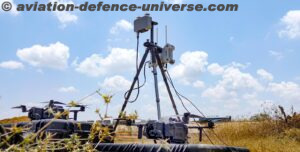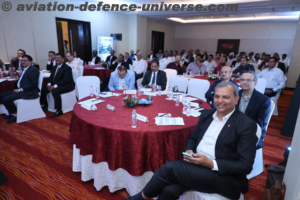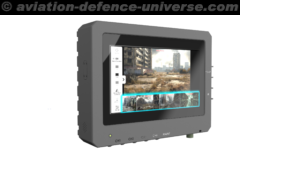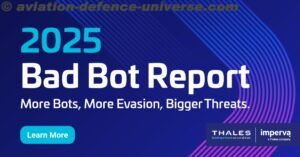- Defence Science and Technology Agency (DSTA) and Thales announce a joint lab to develop AI-enabled technologies which can augment combat systems currently in use by the Singapore Armed Forces.
- With an initial focus on solutions for Counter-Unmanned Aircraft Systems (C-UAS) and Advanced Sensing applications, both parties have co-developed advanced AI algorithms that enable combat systems to efficiently handle fast-evolving drone threats.
- DSTA and Thales signed a Memorandum of Understanding (MoU) in 2022 to deepen and broaden collaboration from development of smart technologies to better supportability of systems. This Co-Lab is another outcome of this MoU that will deepen our collaboration.
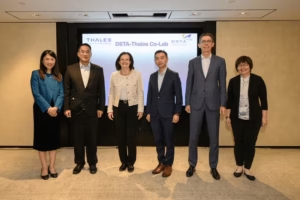 Singapore. 04 April 2025. At the 2025 Singapore Defence Technology Summit (Tech Summit), a joint team from DSTA and Thales showcased its recent collaboration on counter-drone technologies, with tangible outcomes that can potentially be integrated into systems currently in-use with the Singapore Armed Forces (SAF).
Singapore. 04 April 2025. At the 2025 Singapore Defence Technology Summit (Tech Summit), a joint team from DSTA and Thales showcased its recent collaboration on counter-drone technologies, with tangible outcomes that can potentially be integrated into systems currently in-use with the Singapore Armed Forces (SAF).
Over the last five months, engineers from both organisations co-developed Machine-Learning (ML)-enabled software modules that reduce the rate of false alarms in drone detection. By enhancing a radar’s sensor performance with the help of AI, the algorithms offer operators and end-users heightened situational awareness that enable faster and more accurate drone detection and classification.
Through this demonstration of a new Concept of Operations (CONOPs) in enhanced radar performance in drones, the team leveraged physics-, knowledge- and data-based AI, bringing together DSTA’s deep domain knowledge of the drone ecosystem and the technical and AI skills of Thales researchers and engineers. The announcement of the Co-Lab represents the next step in the strategic cooperation between DSTA and Thales, underscoring both parties’ ambitions to support the SAF in dealing with emerging and asymmetric threats.
“The DSTA-Thales Joint Lab marks a strategic step in advancing next-generation defence technologies. By harnessing AI and advanced sensing technologies, we are adopting a more agile approach to capability development, enabling us to tackle evolving threats. This collaboration reinforces DSTA’s commitment to working with global partners to co-develop advanced capabilities, ensuring our defence systems remain robust, adaptive, and future-ready,” said Mr Roy Chan, Deputy Chief Executive (Operations), DSTA.
“Thales’ AI for critical systems must meet the stringent reliability, safety and security requirements for armed forces worldwide. It is a true recognition when our customers trust us to co-develop solutions alongside them that address the pain points and challenges of the end-user. We have achieved the outcomes of the MoU in a relatively short span of time, with our teams harnessing AI to create solutions with real-world implications. This Co-Lab with DSTA speaks to the years of collaboration between us and our joint commitment to provide the best technologies for the SAF and the Singapore Ministry of Defence.” said Pascale Sourisse, President and CEO, Thales International.
Thales holds deep expertise and technological mastery in radars, with air traffic management radars used by the majority of civil aviation authorities in the region, as well as operating a Radar Centre of Excellence in Singapore. As a key partner to the SAF for over 50 years, Thales also operates a Defence Hub for services in Singapore, with skilled local expertise on-hand to support DSTA and Mindef for support and maintenance of systems currently in use with the armed forces.






































